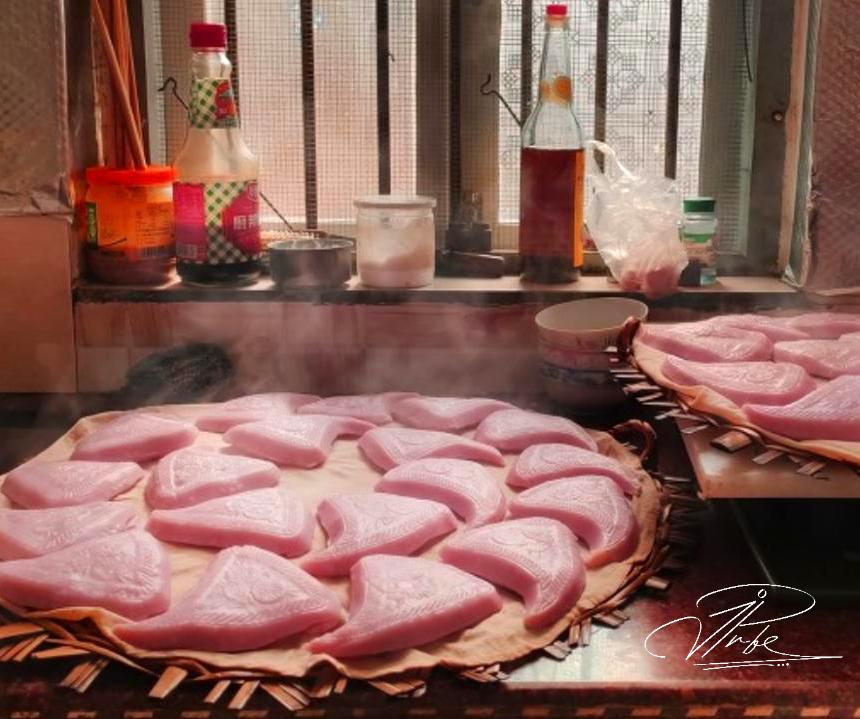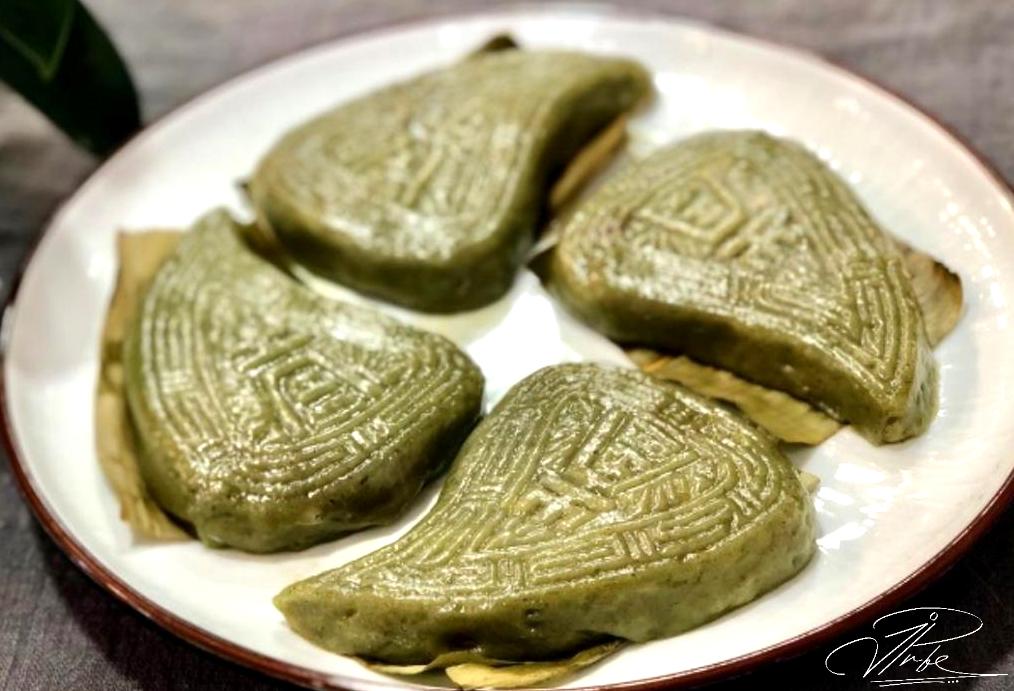Traditional Chinese medicine emphasizes the concept of strengthening the body and mind and preventing diseases, and adjusts the lifestyle, especially the choice of food, according to the changes in time to cultivate the essence, qi, and spirit.
This concept has penetrated into all aspects of the daily life of the Teochew people for thousands of years, especially in terms of food. Each season has its own seasonal fruits, vegetables, and fish. Food that is in season is always loved. Many related proverbs have been born and passed down from this.
Food is the most important thing for people, and healthy eating depends on the weather –
Teochew’s unique insights on seasonal food.
1
Take the humble water spinach as an example. If it is in season, it is “九月蕹菜芯,食赢鲜鸡腿”, which means: September water spinach is the best and tastes better than fresh chicken legs. If it is unseasonal, “五月荔枝树尾红,六月蕹菜存个空”, which means that June water spinach is not worth eating.

2
- “霜降,橄榄落瓮” – Frost Falling Festival is the best time to pickle olives.
- “三四桃李柰,七八(月)油甘柿” – March and April are the best harvest seasons for peaches, plums and tangerines, while July and August are the best harvest seasons for tangerines and persimmons.
- “天时透南风,蟛蜞出空” – In the summer when the south wind blows, crabs are not a good food choice.
- “猛日重露,羹菜铺路”
- “夜昏东(风)、眠起北(风),赤鬃鱼、鲜薄壳” – If you want to catch red-haired fish and Shellfish, you have to go out when the east wind blows at night and the north wind blows in the morning.
The above are the “golden season” formulas summarized by Teochew’s smart producers.
From the perspective of “medicine and food have the same origin”, the proper combination of diet and various medicinal materials can not only cure and prevent diseases, but also have the effect of reasonable tonic and strengthening the body.
Generally speaking, tonic Regimen will also consider “adapting to the four seasons”, such as “warm tonic” in winter and “cool tonic” in summer.
The 4 major TCM Regimen methods that are still popular in Teochew
The ancient Chinese Regimen masters derived different Regimen activities such as:
- adjusting diet and daily life
- taking medicine
- using medical skills (acupuncture, massage, Tuina, etc.)
- practicing martial arts and Qigong
- cultivating spirit
- restraining desires
- cultivating morality
based on their own practice and experience. The following introduces several of the most popular TCM Regimen methods in Teochew:
1) Meridian Regimen.
TCM believes that meridians are a network system throughout the human body.
It is like a road that connects the various internal organs with the head, body and limbs, and carries the flow of qi in the human body to ensure the normal function of various tissue systems.
Only when the meridians are unobstructed can the internal organs communicate with each other and the qi and blood be filled to ensure the smooth progress of life activities and the vigorous metabolism.
Simply put, once the meridians are blocked, it will affect the coordination of the internal organs and the flow of qi and blood in the human body will also be hindered.
Different acupoints have different therapeutic effects. For example: Hegu acupoint can prevent and treat diseases of the face and five sense organs. Neiguan acupoint helps prevent and treat heart diseases. Zusanli acupoint is most effective for weak internal organs, especially digestive system diseases.
2) Regimen Diet
The “medicine” in medicated diet is mainly the selection and preparation of Regimen medicine, which is the concept of “medicine and food have the same origin” in traditional Chinese medicine.
Through the processing of pure natural edible plant medicines, the body’s excess or deficiency can be adjusted to make the body tend to a healthy state. Such cases can be seen almost anytime in Teochew area:
The Teochew people have long known the unique sweet and fragrant taste of “Shuke Grass” and its medicinal effects. The above-ground part of Shuke Grass can be used as medicine. It is mild in nature, sweet in taste, and has the function of expectoration and cough relief. It is mainly used to treat cough, sputum, asthma and other symptoms. Based on this, the Teochew use it as a raw material to make various snacks – for example, Shuke Kueh.

Chinese medicine believes that food has four qi and five flavors (four qi – warm, cool, cold, hot. Five flavors – sweet, salty, spicy, sour, bitter). The appropriate intake of food with different smells can adjust the balance of yin and yang and the function of internal organs in the human body.
3) Time Regimen
There are different changes in the weather in the four seasons, which is the law of “spring growth”, “summer growth”, “autumn harvest” and “winter storage”.
Go to bed when the sun sets and get up when the sun rises… If ordinary people can follow such a regular schedule, they can easily achieve a healthy state. This is the main spirit of “Regimen”.
For example, previous Japanese animal studies have found that when the biological clock is disordered, it will affect the secretion of body hormones, cause a variety of diseases, and even cause blood pressure to soar, which will eventually seriously damage cardiovascular function.
From the perspective of traditional Chinese medicine, from 11 pm to 3 am, the vital energy flows through the gallbladder and liver system of traditional Chinese medicine. If the body can get a complete rest at this time, it can repair liver function, restore physical strength and thinking ability.
In addition, ancient Chinese medicine also believes that if the five internal organs, yin and yang, qi and blood of the human body can adapt to the four seasons, it will help to keep fit and prevent diseases. Otherwise, it is easy to hurt the “liver” if it goes against the spring qi, the “heart” if it goes against the summer qi, the “lung” if it goes against the autumn qi, and the “kidney” if it goes against the winter qi.
4) Emotional Regimen
Traditional Chinese medicine has always believed that excessive emotional fluctuations, especially the seven emotions (joy, anger, worry, thought, sadness, fear, and shock), will damage physical health.
Therefore, the most important step of Regimen is to start with “nurturing the heart”. For example, Sun Simiao, known as the “King of Medicine”, once said: “心诚意正思虑除,顺理修身去烦恼” This means: Developing good character and doing things that benefit others can make you open-minded and happy.
In particular, the “Yellow Emperor’s Internal Classic” mentioned: “恬惔虚无,真气从之;精神内守,病安从来” This means: If you want to pursue health and longevity, you must first start with self-cultivation. You should eliminate all kinds of delusions on weekdays, say more good words, do more good deeds, don’t care, don’t resent, and get angry less, so that your body can tend to be healthy.
Summary
Time and weather is a catchphrase that Teochew people mention every day. Respecting the laws of nature and implementing the concept of harmony between man and nature in food, clothing, housing and transportation is the main method of Chinese medicine health preservation and the way of life of Teochew people.

Leave a Reply